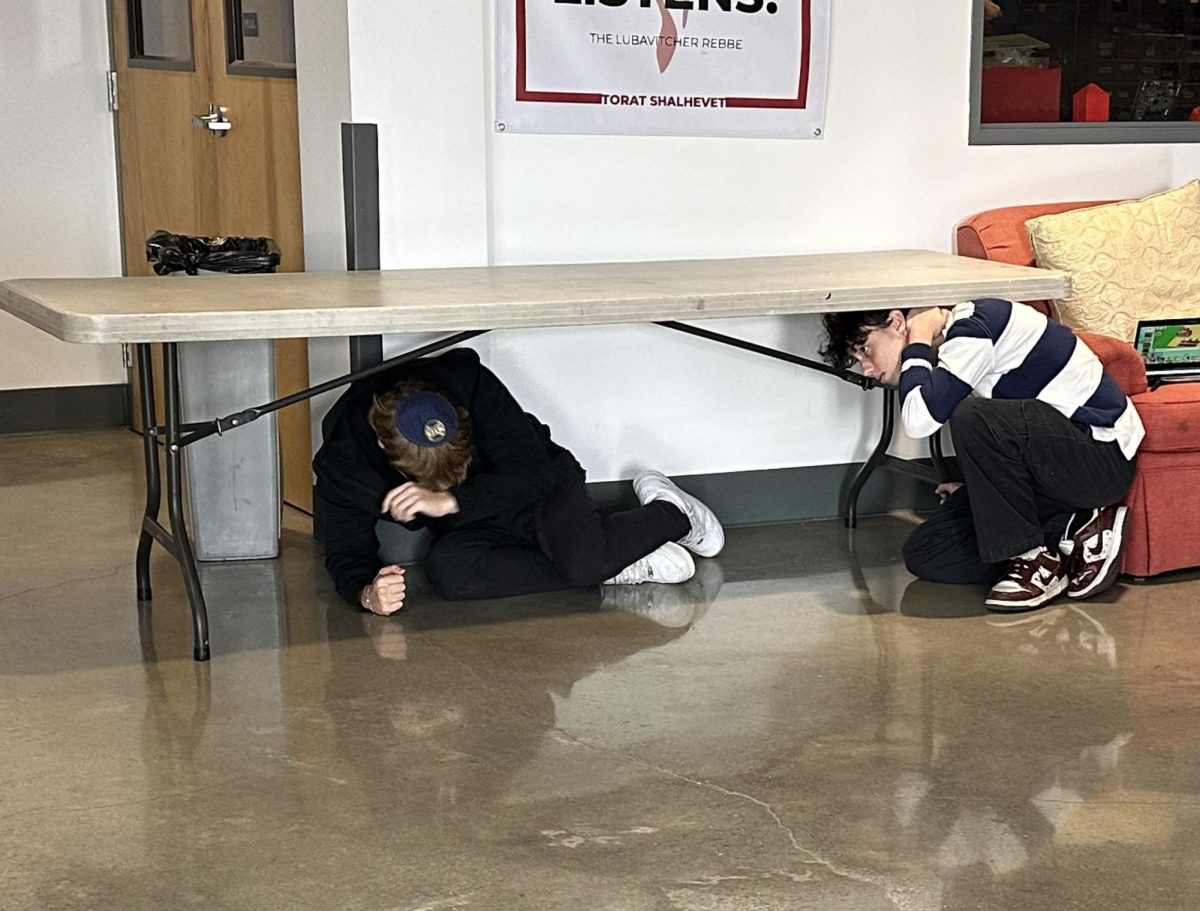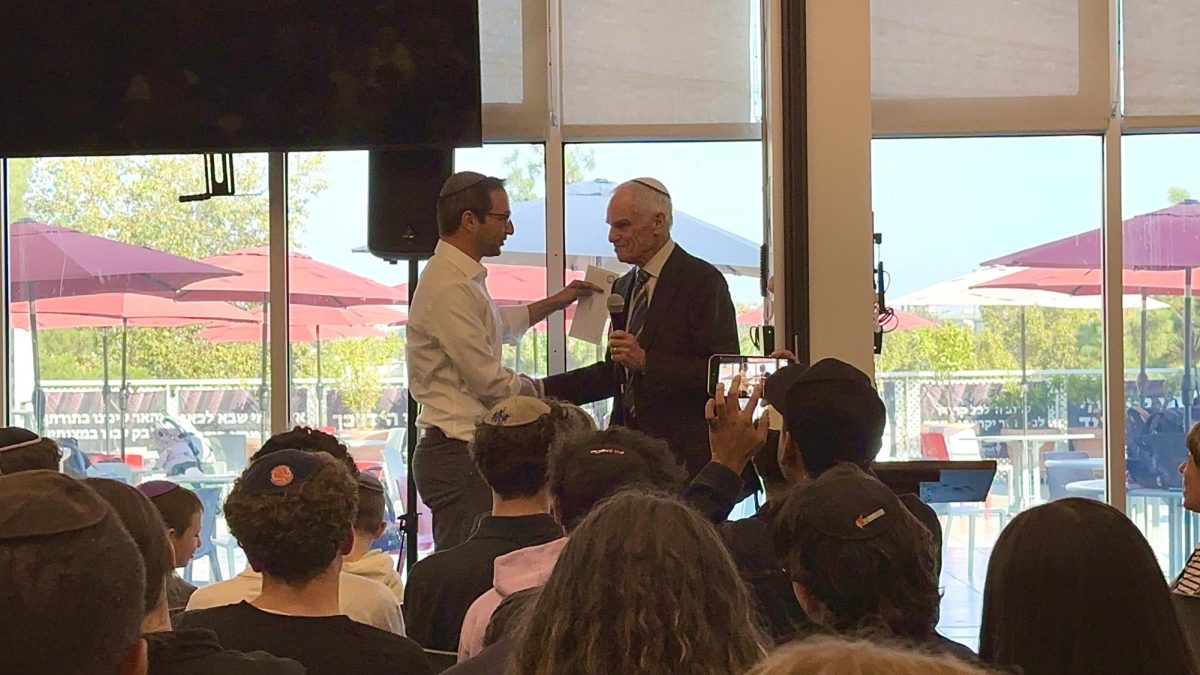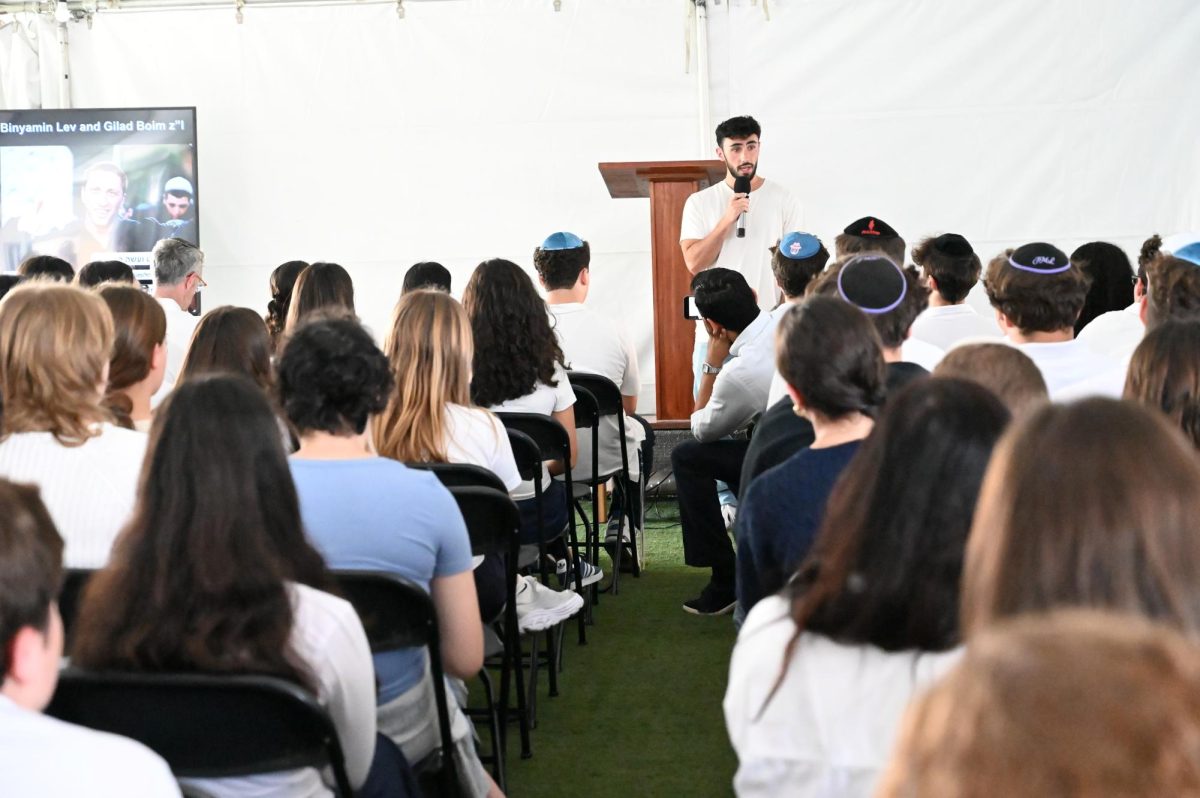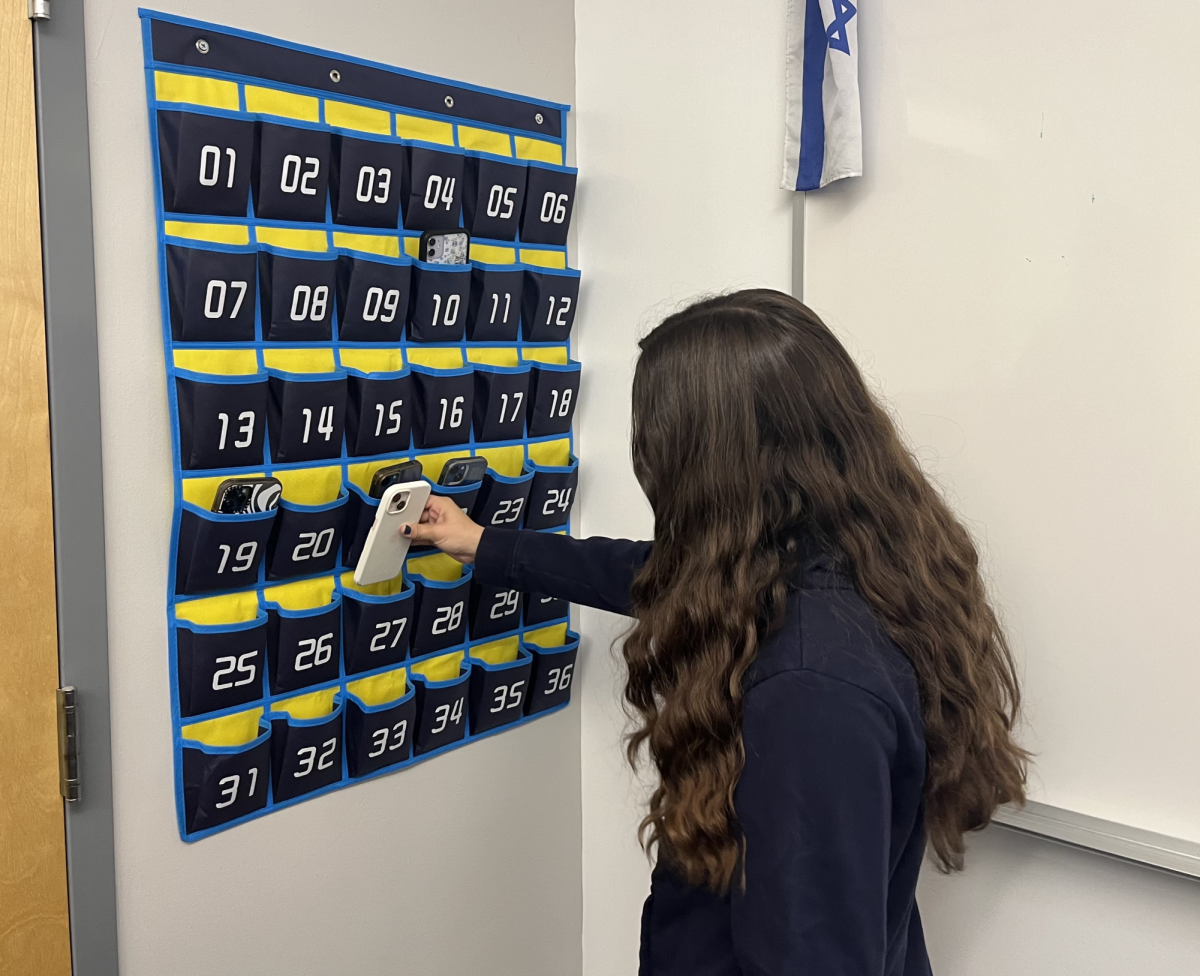After successfully implementing a vision of integrated Judaic and General Studies curricula at Milken Community High School, Mr. Jason Ablin, currently head of school there, will seek to do the same at Shalhevet when he begins Aug. 21 as part-time Coordinator of Curriculum Development.
As Director of General and Integrated Studies at Milken from 1999 to 2008, Mr. Albin developed ways for students to learn class material from both secular and Jewish perspectives. For example, Milken seniors are offered a seminar that integrates AP Literature with Jewish thought and philosophy.
“There’s no reason to study science and technology these days without understanding what Judaism has to say on those subjects, and vice a versa,” Mr. Ablin said in an interview with The Boiling Point.
“There are thousands of creative ways those areas can be brought together but there needs to be a staff willing to explore them and think out of the box. Students could have a broader selection of intellectual engagement.”
Mr. Ablin’s appointment was announced by Head of School Rabbi Ari Segal in a Jan. 27 e-mail sent out to students, staff, parents and alumni.
“As our school takes another step to put us on a path of sustained excellence, our focus now turns to positioning ourselves as a leader in Jewish Day School education,” Rabbi Segal wrote. “In particular, it is our belief that we must proactively develop a curriculum, across the entire school, that prepares our students for the 21st Century — as learners and leaders.”
In an interview after the announcement, Rabbi Segal called Mr. Ablin “a more creative educator who values both the science and the art of teaching.”
“He broadened the level of academic programs at Milken,” Rabbi Segal added. “He created some signature programs.”
Students at Milken seem to enjoy the integrated curriculum.
“You understand things with much greater depth because the time periods and many values from history, Jewish Studies and English coincide,” said Eden Jablon, a Milken junior.
An example, she said, was that her English class read The Scarlet Letter while in that same class they would “learn about the freedom folkways of the Puritans in History and discuss the struggle of the Jewish people in that time period.”
Roger Fuller, principal of Milken’s High School, said Mr. Ablin had instituted this type of learning.
“He was largely responsible for the state of our integrated curriculum at the school, and this has become a trademark of curriculum development here at Milken,” Mr. Fuller said in an interview.
Shalhevet has had at least three curriculum and staff development directors in the past, Director of Curriculum and Instruction Dr. Deborah Parks left the school in 2010. Former General Studies Principal Mr. Phu Tranchi would have assumed the same title when stepping down as principal to start work on his doctorate if he had stayed this year.
Rabbi Rodney Feinerman, Dr. Samuel Gomberg and Dr. Steve Bailey, a co-founder of Shalhevet, had similar titles among the various roles they also played at the school.
Mr. Ablin’s appointment seems to have a more specific goal, however.
“Given that the school is on increasingly stable financial footing every day, the time has come for us to tailor our General Studies program to fulfill our mission and core values,” wrote Board of Directors President Mr. Larry Gill in an e-mail, adding that the Judaic Studies program has already accomplished this goal.
“To borrow Mr. Ablin’s language, the mission and core values include a culture of team work and collaboration in creating an intellectually rigorous and academically progressive and unapologetic Mordern Orthodox community.”
According to his biography on Milken’s website, Mr. Ablin has 20 years of experience working in Jewish education and was also YULA’s English Department Chair for six years from 1993 to 1999.
He received his BA from Vassar College with a double major in Political Science and English, earned a master’s degree from NYU, and spent two years studying Jewish law and philosophy at Shappell’s Yeshiva in Jerusalem.
He said Shalhevet felt like a “good shidduch” to him.
“I appreciated Rabbi Segal’s openness,” Mr. Ablin said. “He wants to make Shalhevet a national voice in education. The possibilities were endless in terms of what could happen at the school.”
Mr. Ablin said he also plans on evaluating Shalhevet’s AP classes.
“I think the AP program can have a very vital role in the school but should also be very missionized,” he said. “The AP program does not guarantee academic excellence. I question the value of just having AP exams to pop up kids’ resumes.
“I want to look at mission alignment, and how AP classes can be used for integrated learning experiences at the school which expand past the standard curriculum of the AP program.”
Mr. Ablin believes that teachers should “show a great degree of flexibility” and be “risk takers and entrepreneurial.” He said he would eventually observe all the classes in the school and work individually and with teams of faculty and administrators.
He said that Shalhevet should choose skills – such as presentation skills – that it wants students to graduate with and then train its teachers on “making them happen in a very deep way.”
“All teachers have to develop their own approaches to make sure the kids are practicing those skills,” he said.
The key to knowledge, he said, is student interaction with class material and project-based learning.
“For a large part of the 20th century, students have been seen as vessels that get filled up by teachers – to be filled up with content and meaning from someone’s else’s expertise,” Mr. Ablin said. “What I think is much more important is that students become producers of their own knowledge.”
Mr. Ablin acknowledged the transition involved in going from a school with a large base of resources – Milken has 741 total students, an operating budget of $20.6 million and a large hillside campus overlooking the San Diego Freeway on Mulholland Drive – to a smaller school with a much smaller budget.
However, he said ample resources can also be a burden and lead to an “unfocused approach,” while at a smaller school, the faculty learns to collaborate and find creative solutions.
“When you don’t have a lot of resources, you’re relying on something much more valuable called human capital and creativity,” he said.
In fact, he looks forward to working in a small school, he said, “because when we work hard, we can make a unique culture.”
Like many Shalhevet students, Mr. Ablin – who hails from New York City – lives in the Pico-Robertson community. His wife, Lisa Bellows Ablin, is a social worker and their two daughters attend Maimonides Academy.
“I am a mad audio fan,” he said. “I love music and listen to all kinds of music. My car is constantly filled with different CDs and I read music magazines.”
Mr. Ablin announced Sept. 9 that this would be his last year at Milken. In a letter to the Milken community, he wrote that “With Milken transitioning into a new and exciting era and with the particular type of work that will need to be accomplished in the future,both the Board and I agreed that the future position of Head of School was not in accordance with my own professional mission.”







